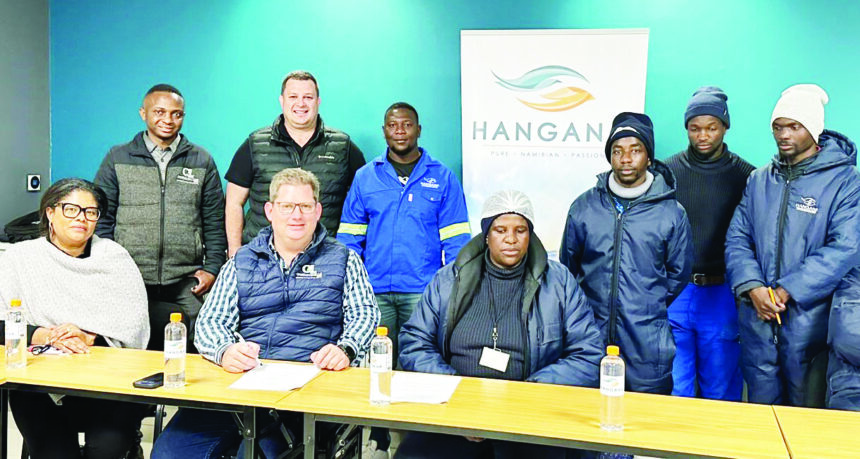Hangana Seafood has concluded wage negotiations with its Workers’ Council. This marks the first time these negotiations have been conducted with representation from a Workers’ Council, a significant shift from previous years when a union led the negotiations. Both the company and the Workers’ Council acknowledge that the process has been a valuable learning experience for both sides.
A Workers’ Council is composed of employees elected by their peers within the company, ensuring their representation is closely aligned with the specific needs and experiences of the workforce. This is intended to create a more tailored and collaborative negotiation process, where employees have a direct voice in shaping outcomes that reflect their priorities, while still ensuring that the company’s long-term goals are considered. According to a Hangana statement, unions, on the other hand, often address broader, sector-wide concerns which may not always account for the unique dynamics within the single organisation.
As one of the major employers in the Namibian hake fishing industry, Hangana provides approximately
1 200 jobs and operates a state-of-the-art wet fish factory along with its own fleet of seven wet fish trawlers.
Hangana said the fishing industry is complex, and labour relations often reflect that complexity. This first negotiation process with the Workers’ Council demonstrates that, through empathy, transparency, and a willingness to learn, both parties can authentically work together to achieve outcomes that benefit everyone.
Francois Olivier, Managing Director of Hangana Seafood, commented: “I am incredibly proud of the way the Workers’ Council conducted itself during this process. Despite it being their first time negotiating in this capacity, they demonstrated honesty, openness, and a strong sense of responsibility towards both their colleagues and the long-term vision, Vision 2029, of the company. We recognise that there is still work to be done, but we are optimistic about the future and committed to continuing our collaboration for the benefit of both the business and its employees.”
Lucia Hamunyala, chairperson of the Workers’ Council, reflected on the experience: “It is the first year that the company and the Workers’ Council have negotiated without a union. We concluded the negotiations, although it was tough.”
This successful negotiation represents a milestone in the company’s relationship with its workforce. The process has reaffirmed Hangana’s dedication to fostering meaningful, mutually-beneficial relationships, and the company is optimistic about the future, and remains committed to working hand in hand with its employees to ensure sustainable growth for all.
Hangana Seafood, a subsidiary of the Ohlthaver & List (O&L) Group, is a 100% Namibian-owned seafood company specialising in the harvesting, processing, and value-adding of hake and selected seafood from around the world. The company stated it is dedicated to ethical and sustainable fishing practices in Namibian waters, with its products distributed to markets across Australia, France, Germany, Italy, the Netherlands, Spain, the UK, USA, and the Southern African Development Community (SADC) region.



